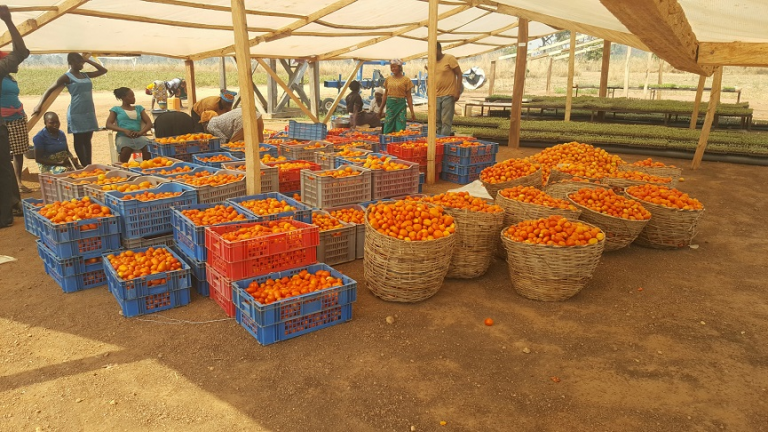
Nigeria’s Consumer Price Index (CPI) has risen to 17.1% in the month of October, according to recent data published by the Nigerian Bureau of Statistics (NBS).
The latest rise of CPI, also known as core inflation – which results from less farm produce, is the highest the country has recorded in five years, and has pushed headline inflation further up.
Core inflation refers to inflation based on the CPI, covering the inflation of all the goods and services except the volatile food & fuel prices, excise duties, income tax, and other financial investments. It guides the governments in forecasting long-term inflation trends for a country.
Register for Tekedia Mini-MBA edition 19 (Feb 9 – May 2, 2026): big discounts for early bird.
Tekedia AI in Business Masterclass opens registrations.
Join Tekedia Capital Syndicate and co-invest in great global startups.
Register for Tekedia AI Lab: From Technical Design to Deployment (next edition begins Jan 24 2026).
According to the NBS, headline inflation also hit a new high of 20.77 percent in September, buoyed by food supply, foreign exchange crisis, and increases in import costs. This is an uptick from August’s 20.52 percent figure that marked a 17 year high.
“In September 2022, on a year–on-year basis, the headline inflation rate was 20.77 percent. This was 4.14 percent points higher compared to the rate recorded in September 2021, which was (16.63 percent).
“This indicates that in the month of September 2022 the general price level was 4.14 percent higher relative to September 2021. On a month-on-month basis, the Headline inflation rate in September 2022 was 1.36 percent, this was 0.41 percent lower than the rate recorded in August 2022 (1.77 percent),” the NBS said.
The statistics agency reported that on a month-on-month basis, core inflation rose by 1.58 percent year-on-year, repeating the same figure reported a month earlier. It has been on the rise since April, following the jump in the pump price of diesel to N700, which consequently stoked the cost of goods and services.
The NBS revealed that food inflation rose to 23.34 percent in September, year-on-year, due to increases in the price of bread, cereals, potatoes, yam, oil, fat, and other food products.
The agency further attributed the rise in headline inflation year-on-year to factors such as; the disruption in the supply of food products, increase in import cost due to the persistent currency depreciation, and general increase in the cost of production.
“Likely factors responsible for the decline in the monthly inflation rate (Month-on-month basis).
“Over the past two months, there has been a decline in headline inflation on a month-on-month basis due to a decline in the changes in the food index relative to the reference month index which is due to the present harvest season.
“Likely factors responsible for the increase in annual inflation rate (year-on-year basis). Disruption in the supply of food products, increase in import cost due to the persistent currency depreciation. General increase in the cost of production,” the agency said.
The rising core inflation has a weightier economic effect as it cripples purchasing power as people prioritize their spending to cope with the increase in the cost of living.
Experts are worried that Nigerians, whose meager disposable income has further been impacted by the rising cost of living, will have to face a multidimensional economic hardship. The situation is expected to be compounded by the flood that is currently wreaking havoc across Nigeria. So far, more than 13 states have been impacted, with major farmlands being submerged.
With factors responsible for the rocketing inflation, including forex scarcity and insecurity, yet to be addressed, Nigeria has found itself in a difficult situation. Prof. Akpan Ekpo, an economist at the University of Uyo, said that the government’s inability to address the issues, particularly, insecurity is driving food inflation up.
“If the issue of insecurity is not addressed and farmers can’t go back to work freely there will be problems, especially with the flood now-perhaps they might lift the ban on importing food.
“If they lift the ban on importing rice, that will become another problem for us, because right now, the flood has affected most of the rice-producing areas in the country. So, I think it is more of a structural problem and supply-side issue we have to address and not necessarily a monetary phenomenon. That part is just the CBN lending to the government which is very high,” he said.



